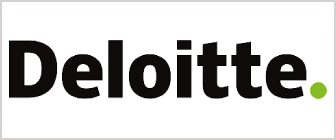What is the most significant change to your region/jurisdiction’s indirect tax legislation in the past 12 months?
I would say that the most significant changes to my jurisdiction’s indirect tax regime are related to decisions of the Superior Court and Supreme Court, respectively, in favour of the taxpayers:
- Extension of concept of “input” for Federal Social Contributions (PIS and Cofins) credit purposes; and
- Federal Supreme Court decision about the non-inclusion of the State VAT (ICMS) on PIS and Cofins calculation base.
What has been the most significant impact of that change?
Both decisions are relevant and might affect the clients in a positive way since they represent a significant tax recovery.
How do you anticipate that change impacting your work and the market moving forwards?
In relation to both tax recovery opportunities derived from the decisions, Deloitte Brazil developed systems that are able to optimise the calculation of the amounts and preparation of documentation to support the recovery.
How has this changed the way you offer tax advice?
Considering that the Brazilian tax environment is digital and the Brazilian Internal Revenue Service has access to all the detailed information of invoices and tax returns, we developed several tools in order to analyse this database, crosscheck information and provide a complete analysis to our clients in terms of tax compliance and also tax recovery.
What potential other legislative changes are on the horizon that you think will have a big impact on your region/jurisdiction?
A bill presented to the Brazilian Chamber of Deputies on April 3, 2019 contains measures that would simplify the tax system and harmonise the Value Added Tax (VAT) system with the systems of other countries. The current bill proposes to combine five taxes and contributions and replace them with a single value added tax, the “single tax on goods and services” (IBS). The following taxes and contributions would be abolished:
- Federal excise tax (IPI);
- Federal Social Contributions (PIS and Cofins);
- State VAT (ICMS); and
- Municipal service tax (ISS).
What are the potential outcomes that might occur if those changes are implemented?
This potential simplification of the Indirect Tax Brazilian System would bring the need for companies to adapt their systems to correctly calculate the new VAT. It would be also necessary to evaluate the impacts in pricing and cost, considering the taxation and the potential tax credits.
For sectors that currently have tax incentives, depending on the new legislation, the impact to the business could be significant.
Do you think that change will have a positive effect on both your practice and the wider regional/jurisdictional market?
Difficult to say at this stage given that this change would be relevant, extinguishing five indirect taxes and creating just one. It would bring a simplification for companies but the side effects, which could include the removal of tax incentives and a new indirect tax burden, are difficult to measure now.
How are issues surrounding the taxation of the digital economy affecting your jurisdiction?
The taxation of the digital economy is proving to be one of the greatest challenges of our time around the world – and it is no different in Brazil. Brazil’s main debate regarding the digital economy is whether ICMS (State VAT) or ISS (Municipal Tax on Services) should be applied. This controversy is far from being resolved.
What legislative changes would you like to see be implemented that you think would have the most positive effect on your practice and the wider regional/jurisdictional market?
I believe a simplification of the Social Contributions (PIS and Cofins) would be very positive for the country and the market.
Do you think something like that is likely to be implemented in the near future?
I believe that simplification of the Social Contributions or the Federal Indirect Taxes are likely to be implemented.


